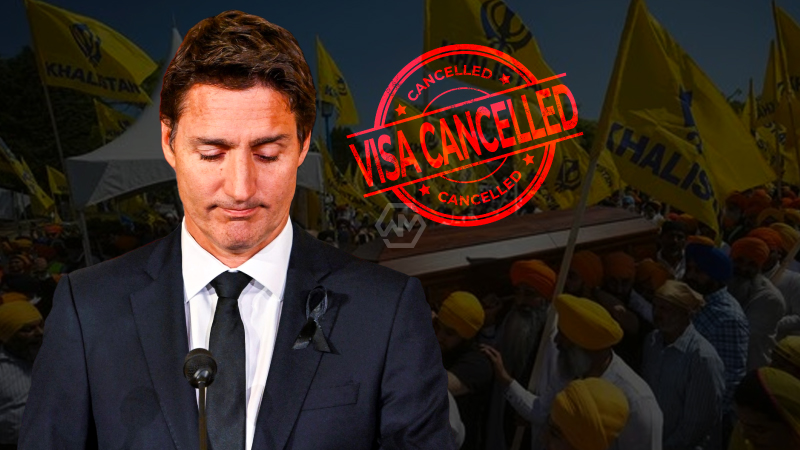- India‘s Outside Issues Service didn’t promptly remark.
- Najjar was attempting to arrange an informal mandate among the Sikh diaspora on autonomy from India at the hour of his killing.
- He had denied India’s allegation that he was a fear-based oppressor.
India’s visa handling focus in Canada suspended administrations Thursday as a crack extended between the nations after State head Justin Trudeau said India might have been engaged in the killing of a Canadian Sikh pioneer.
It gave no further subtleties. BLS is the organization that cycles visa demands for India, including for section, traveler, understudy, and business visas. The middle has actual areas in urban communities like Toronto, Ottawa, Winnipeg, and Vancouver.
India Stopped Visa Services in Canada
In 2021, 80,000 Canadian travelers visited India, making them the fourth-biggest gathering, as per India’s Agency of Movement. Canada is an appealing objective for Indians, particularly understudies. In 2022, almost 300,000 Indians were seeking advanced education in Canada.
Trudeau told Parliament on Monday that there were “dependable claims” of Indian contribution in the death of Sikh freedom dissident Hardeep Singh Nijjar, who had been needed by India for a long time and was gunned down external a Sikh sanctuary in Surrey, B.C., on June 18.
Canada likewise ousted an Indian representative, and India followed by removing a Canadian negotiator on Tuesday.
It called the charges being examined in Canada silly and an endeavor to move consideration from the presence of Nijjar and other needed suspects in Canada.
Requests for a free Sikh country, known as Khalistan, began as an uprising in India’s Punjab state during the 1970s that was squashed in an Indian government crackdown that killed thousands. The development has since lost a lot of its political power yet has allies in Punjab, where Sikhs structure a greater part, as well as among the sizable abroad Sikh diaspora.
India’s Public Examination Office said Wednesday it has heightened its crackdown on Sikh extremists working in India. It declared awards of up to 1 million rupees ($16,230 Cdn) for data prompting the capture of five radicals, one of whom is accepted to be situated in adjoining Pakistan.
The organization blamed them for coercing cash from organizations for a restricted Sikh association, the Babbar Khalsa Worldwide, and for designated killings in India.



